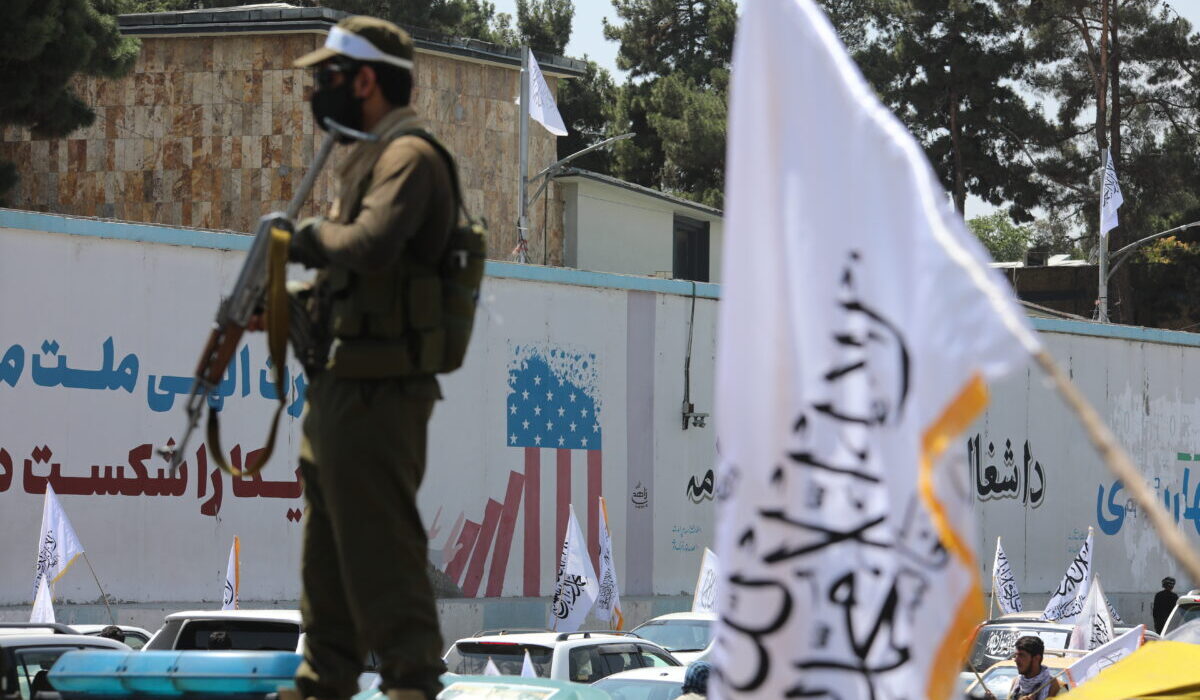The U.S. Special Inspector General for Afghanistan Reconstruction (SIGAR) reported that three years after the Taliban’s takeover of Afghanistan, certain terrorist groups continue to operate within the country.
While the Taliban have taken action against the Islamic State in Iraq and Syria-Khorasan (ISIS-K) and other anti-Taliban factions, they have remained tolerant of groups such as al-Qaeda and Tehreek-e-Taliban Pakistan (TTP), the report stated.
Citing a U.N. sanctions monitoring team’s report from July, SIGAR noted that Afghanistan is still perceived as a “permissive territory” for terrorist organizations that seek to project threats globally. Since August 2021, violence levels in Afghanistan have generally declined, largely because the Taliban are no longer fighting the previous Afghan government or coalition forces. However, the U.N. Secretary-General’s September 2024 report indicated that security incidents, including land disputes, armed clashes, and IED detonations, had risen by 53% between mid-May and the end of July, compared to the same period in 2023.
The U.S. assessment, according to SIGAR, indicated that while al-Qaeda’s operational presence in Afghanistan and Pakistan has reached a low point, the Taliban continue to allow the group to maintain a safe haven in the country. The U.N. report also mentioned that affiliates have been traveling to al-Qaeda’s training camps and assisting with reorganizational efforts, a sign of the group’s long-term ambitions.
SIGAR highlighted that al-Qaeda has been providing TTP with Afghan fighters and training facilities, leading the U.N. sanctions monitoring team to caution that “greater collaboration among al-Qaeda affiliates and TTP could transform the latter into an ‘extra-regional’ threat.”
From July 1 to October 11, the TTP claimed responsibility for 173 attacks targeting Pakistani forces and civilians, according to the Armed Conflict Location and Event Data (ACLED) project. While Pakistan asserts that the TTP operates out of Afghanistan with Taliban support, the Taliban deny any terrorist groups are active within Afghan borders.
The U.N. Secretary-General’s report indicated that TTP fighters had been killed in provinces including Kunar, Paktika, Kabul, and Khost during the reporting period, and there were at least 13 clashes between Taliban and Pakistani forces, resulting in multiple casualties on both sides.
The report also examined the status of ISIS-K, noting that while the group does not pose a direct challenge to Taliban rule or hold territorial control in Afghanistan, it maintains logistical and financial support networks. A U.N. sanctions monitoring team reported that ISIS-K continues to utilize connections in Afghanistan and Turkey to facilitate the movement of operatives from Central Asia to Europe.
In August, Austrian authorities announced they had thwarted an ISIS-K plot to attack pop star Taylor Swift’s concerts in Vienna, underscoring the reach of the group’s plans.
During the quarter, ISIS-K claimed 14 attacks across Afghanistan and Pakistan, including multiple incidents in Kabul. “ISIS-K’s Telegram channel said one attack in Kabul was in retaliation for the Taliban’s use of Bagram Airfield for detentions,” the report noted. Another attack on September 12 targeted the Taliban’s “high directorate of supervision and prosecution of decrees and edicts,” which has replaced the former Afghan government’s attorney-general’s office.
Despite these continued, low-level assaults, the Taliban maintain that ISIS-K’s “presence has been reduced to zero.”
According to SIGAR, the Taliban’s Ministry of Defense claimed that 5,432 individuals joined the army this quarter, raising their total reported, though unverified, strength to 183,322. The ministry also reported that three pilots joined the Taliban air force, bringing the force’s total to 67 members.




